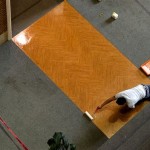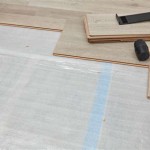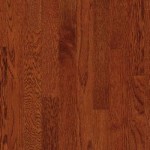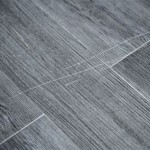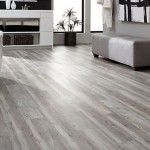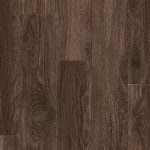Tile Flooring Cost Per Square Foot: A Comprehensive Guide
Tile flooring has remained a popular choice for homeowners and commercial property owners alike due to its durability, aesthetic versatility, and relatively low maintenance requirements. Understanding the cost associated with tile flooring is crucial for budgeting and planning any renovation or new construction project. This article provides a detailed breakdown of the factors influencing the cost per square foot of tile flooring, encompassing materials, labor, and potential ancillary expenses.
The initial cost of tile flooring can be broken down into several key components, primarily the cost of the tiles themselves, the cost of installation labor, and the cost of underlayment and other necessary materials like grout, adhesive, and sealants. The cost of each of these components can vary significantly depending on the type of tile selected, the complexity of the installation, and the region where the work is being performed. A thorough understanding of these variables will enable a more accurate estimation of the overall project cost.
Understanding the Cost of Tile Materials
The material cost constitutes a significant portion of the overall expense of tile flooring. Tile prices vary widely based on the material used, the manufacturing process, the size and style of the tile, and the brand. Common tile materials include ceramic, porcelain, natural stone, glass, and others. Each material offers distinct characteristics in terms of durability, water resistance, aesthetic appeal, and cost, influencing their suitability for different applications.
Ceramic tile is generally the most cost-effective option, commonly ranging from $0.50 to $5.00 per square foot. This price point makes ceramic a popular choice for budget-conscious projects. Ceramic tiles are manufactured from clay fired at high temperatures, rendering them durable and suitable for many applications. However, ceramic tiles are less dense and more porous than porcelain tiles, which translates to lower resistance to water damage and staining.
Porcelain tile is a more durable and water-resistant alternative, typically priced between $3.00 and $10.00 per square foot. Porcelain tiles are also made from clay but are fired at higher temperatures, resulting in a denser and less porous material. This makes porcelain tile ideal for bathrooms, kitchens, and outdoor areas where moisture resistance is paramount. Porcelain tiles are also known for their durability and ability to withstand heavy foot traffic.
Natural stone tiles, such as granite, marble, limestone, and slate, offer a unique aesthetic appeal and can add significant value to a property. However, natural stone tiles are generally the most expensive option, ranging from $5.00 to $50.00 or more per square foot. The price is influenced by the rarity of the stone, the complexity of its extraction and processing, and its overall quality. Natural stone also requires specialized sealing and maintenance to protect it from staining and water damage.
Glass tiles provide a distinctive look and are often used as decorative accents in backsplashes and mosaics. The cost of glass tiles typically falls between $7.00 and $20.00 per square foot. Glass tiles are non-porous and resistant to staining, making them suitable for wet areas. However, glass tiles can be more susceptible to chipping and scratching than other tile materials.
Other tile options include cement tiles, which offer a handcrafted look and are available in various patterns and colors, with prices ranging from $8.00 to $25.00 per square foot. Quarry tiles, made from unglazed clay, are known for their durability and slip resistance, costing approximately $2.00 to $8.00 per square foot. The choice of tile material significantly impacts the overall cost of the flooring project.
Analyzing Labor Costs for Tile Installation
Labor costs represent a substantial portion of the total cost of tile flooring installation. The price of labor is determined by the complexity of the installation, the size of the area to be tiled, the type of tile being installed, and the prevailing labor rates in the region. Intricate patterns, challenging layouts, and the use of large-format tiles can all increase labor costs.
On average, professional tile installers charge between $5.00 and $15.00 per square foot for labor. This rate can vary based on the installer's experience and expertise, local market conditions, and the specific requirements of the project. Complex installations involving intricate patterns, custom cuts, or challenging layouts may command higher rates.
The preparation of the subfloor is a crucial step in tile installation and can impact labor costs. A level and structurally sound subfloor is essential for a successful tile installation. If the existing subfloor requires extensive repairs or leveling, this will add to the overall labor cost. Installers may need to apply a self-leveling compound or reinforce the subfloor with additional plywood or cement board, depending on the specific conditions.
The removal of existing flooring also contributes to the labor cost. Removing old carpet, vinyl, or tile can be a time-consuming and labor-intensive process. The cost of removing existing flooring can range from $1.00 to $5.00 per square foot, depending on the type of flooring and the complexity of the removal process.
Grouting and sealing are critical steps in completing a tile installation. Grouting fills the spaces between the tiles, providing structural support and preventing water damage. Sealing protects the grout from staining and mildew growth. The cost of grouting and sealing is typically included in the overall labor cost but may be itemized separately by some installers.
It is essential to obtain multiple quotes from qualified tile installers to compare pricing and ensure that the estimates are comprehensive and include all necessary aspects of the job. Verifying the installer's credentials, licenses, and insurance is crucial before hiring them.
Accounting for Additional Costs and Considerations
In addition to the material and labor costs, several other factors can influence the overall cost of tile flooring. These include the cost of underlayment, adhesive, grout, sealant, and any necessary demolition or disposal fees. Overlooking these ancillary costs can result in an inaccurate budget and unexpected expenses.
Underlayment provides a smooth and stable surface for the tile to be installed on. The type of underlayment required depends on the subfloor material and the type of tile being used. Common underlayment materials include cement board, plywood, and specialized membranes. The cost of underlayment typically ranges from $0.50 to $3.00 per square foot.
Tile adhesive, also known as thin-set mortar, is used to bond the tile to the subfloor. The type of adhesive required depends on the type of tile being installed and the subfloor material. Premium adhesives may be necessary for large-format tiles or natural stone tiles. The cost of tile adhesive typically ranges from $0.25 to $1.00 per square foot.
Grout fills the spaces between the tiles and provides structural support and prevents water damage. The type of grout used depends on the type of tile being installed and the desired aesthetic. Epoxy grout is more durable and stain-resistant than cement-based grout but is also more expensive. The cost of grout typically ranges from $0.10 to $0.50 per square foot.
Sealant protects the grout from staining and mildew growth. Sealing is particularly important in wet areas, such as bathrooms and kitchens. The cost of sealant typically ranges from $0.05 to $0.25 per square foot.
Demolition and disposal fees may apply if existing flooring needs to be removed. The cost of demolition and disposal depends on the type of flooring being removed and the disposal fees in the local area. These fees can range from $1.00 to $5.00 per square foot.
Other potential costs include delivery fees for the tile and other materials, as well as any necessary permits or inspections required by local building codes. It is crucial to factor in all these potential costs when budgeting for a tile flooring project.
The location of the project can also impact the overall cost of tile flooring. Labor rates and material prices can vary significantly depending on the region. Urban areas typically have higher labor rates than rural areas. Similarly, material prices may vary depending on the distance from suppliers and the demand for specific tile types.
The complexity of the project also influences the cost. Intricate patterns, custom cuts, and challenging layouts can all increase the labor cost. Projects involving multiple rooms or complex shapes may also require more time and materials, resulting in higher overall costs.

Ceramic Tile Flooring Installation Cost Fixr

How Much Does Tile Installation Cost Per Square Foot Pro Depot

How Much Does Tile Installation Cost 2024 Guide

Tile Flooring Installation Cost Floor S Fixr

What Is The Average Cost To Install Tile Floors Rubi Blog Usa

Cost Of Flooring Contractorbhai

Vitrified Floor Tiles 2x2 Feet 60x60 Cm At Rs 16 Square In Gurgaon Id 17962327762

Ceramic Tile Flooring Installation Cost Fixr

How Much Does Tile Installation Cost 2024 Guide

2024 Ceramic Tile Installation Cost A Complete Guide Angi
Related Posts


